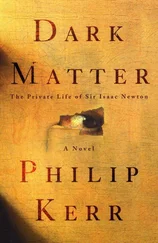Philip Kerr - A Man Without Breath
Здесь есть возможность читать онлайн «Philip Kerr - A Man Without Breath» весь текст электронной книги совершенно бесплатно (целиком полную версию без сокращений). В некоторых случаях можно слушать аудио, скачать через торрент в формате fb2 и присутствует краткое содержание. Год выпуска: 2013, Издательство: Quercus, Жанр: Триллер, на английском языке. Описание произведения, (предисловие) а так же отзывы посетителей доступны на портале библиотеки ЛибКат.
- Название:A Man Without Breath
- Автор:
- Издательство:Quercus
- Жанр:
- Год:2013
- ISBN:нет данных
- Рейтинг книги:4 / 5. Голосов: 1
-
Избранное:Добавить в избранное
- Отзывы:
-
Ваша оценка:
- 80
- 1
- 2
- 3
- 4
- 5
A Man Without Breath: краткое содержание, описание и аннотация
Предлагаем к чтению аннотацию, описание, краткое содержание или предисловие (зависит от того, что написал сам автор книги «A Man Without Breath»). Если вы не нашли необходимую информацию о книге — напишите в комментариях, мы постараемся отыскать её.
A Man Without Breath — читать онлайн бесплатно полную книгу (весь текст) целиком
Ниже представлен текст книги, разбитый по страницам. Система сохранения места последней прочитанной страницы, позволяет с удобством читать онлайн бесплатно книгу «A Man Without Breath», без необходимости каждый раз заново искать на чём Вы остановились. Поставьте закладку, и сможете в любой момент перейти на страницу, на которой закончили чтение.
Интервал:
Закладка:
Dyakov shrugged. ‘This is very special girl, sir. I should like to marry her but Marusya says no and, until she does, I must keep trying. If there was any work for her somewhere else I guess I’d be there instead.’
‘Peshkov on the other hand hasn’t a soft spot for anyone other than Peshkov,’ added Ahrens. ‘Isn’t that right, Peshkov?’
Peshkov shrugged. ‘A man has to make a living, sir.’
‘We think he might be a secret Jew,’ continued Ahrens, ‘but no one can be bothered to find out for sure. Besides, his German is so good it would be a shame if we had to get rid of him.’
Both Peshkov and Dyakov were Zeps – Zeppelin volunteers, which is what we called all the Russians who worked for us who were not POWs; those were Hiwis. Dyakov wore a heavy coat with a lambswool collar, a fur hat and a pair of black leather German pilot’s gloves that he said were a gift from the field marshal, just like the Mauser Safari rifle he carried on a sheepskin strap over his shoulder. Dyakov was a tall, dark, curly-haired fellow with a thick beard, hands the size of a balalaika, and unlike Peshkov his face always wore a broad and engaging smile.
‘You take the field marshal wolf-hunting,’ I said to Dyakov. ‘Is that right?’
‘Yes sir.’
‘See many wolves around here?’
‘Me? No. But it’s been a very cold winter. Hunger brings them nearer to the city in search of scraps. A wolf can get a good meal out of an old piece of leather, you know.’
We all went to sit in the castle kitchen, which was the warmest place in the house, and drank black Russian tea from a battered samovar, sweetening it with some of the honey the couple made. The delicious smell of the sweetened tea wasn’t quite strong enough to mask the dark smell of the Russians.
Peshkov liked the tea but he didn’t much like the Susanins. He spoke roughly to them – rougher than I would have liked under the circumstances.
‘Ask them if they remember any Poles in this area,’ I told him.
Peshkov put the question and then translated what Susanin had said. ‘He says that in the spring of 1940 he saw more than two hundred Poles in uniform in railway trucks at Gnezdovo station. The train waited for an hour or so and then started again, going south-east toward Voronezh.’
‘How did they know they were Poles?’
Peshkov repeated the question in Russian and then answered: ‘One of the men in the railway wagons asked Susanin where they were. The man said he was Polish then.’
‘What was that word they used?’ I asked ‘ Stolypinkas ?’
Peshkov shrugged. ‘I haven’t heard it before.’
‘Yes sir,’ said Dyakov. ‘ Stolypinkas were the prison wagons named after the Russian prime minister who introduced them under the tsars. To deport Russians to Siberia.’
‘How far is the station from here?’ I asked.
‘About five kilometres west,’ said Peshkov.
‘Did any of these Poles get out of the wagons?’
‘Get out? Why should they get out, sir?’ asked Peshkov.
‘To stretch their legs, perhaps. Or be taken somewhere else?’
Peshkov translated, listened to Susanin’s answer, and then shook his head. ‘No, none of them. He’s sure of that. The doors remained chained, sir.’
‘What about this place? Were there ever any executions around here? Of Jews? Of Russians, perhaps? And why is there a cross in the middle of the Katyn Wood?’
The woman never spoke at all, and Oleg Susanin’s answers were short and to the point, but I’ve questioned enough men in my time to know when someone is holding something back. Or lying.
‘He says that when NKVD had this house they were forbidden to come to Dnieper Castle for security reasons so they don’t know what went on here,’ said Peshkov.
‘There was a fence all the way around the land then,’ added Dyakov. ‘Since the Germans arrived, the fence has been broken down by soldiers foraging for firewood, but some of it is still there.’
‘Don’t be so rough with them,’ I told Peshkov. ‘They’re not accused of anything. Tell them there’s nothing to be afraid of.’
Peshkov translated again, and uncertainly the Susanins both nodded a faint smile in my direction. But Peshkov remained contemptuous.
‘Take my word for it, boss,’ he said. ‘You have to speak roughly to these people or they won’t answer at all. The babulya is a real peasant, and the starik is a stupid bulbash who’s spent his whole life in fear of the Party. They’re still terrified the NKVD will come back – even after eighteen months of German occupation. As a matter of fact I’m a little surprised these two are still here. It goes without saying that if those mudaks ever do come back here these two will be Russian fertilizer. Know what I’m saying? Day one they’ll be shot just because they worked for you fellows. With all due respect to your colonel, about the only thing that’s kept them here are their beehives.’
‘Like Tolstoy, yes?’ Dyakov laughed loudly. ‘Still, it makes for a nice cup of tea, yes?’
‘Aren’t you afraid of what will happen if the NKVD comes back?’
Peshkov glanced at Dyakov and shrugged.
‘No sir,’ said Peshkov. ‘I don’t believe they are coming back.’
‘That is a matter of opinion,’ I said.
‘Me? I don’t have any beehives, boss.’ Dyakov grinned widely. ‘There’s nothing to keep Alok Dyakov here in Smolensk. No sir, when the shit starts coming up through the floor I’m going to Germany with the field marshal. If it was just being shot, I could live with that, if you know what I mean. But there’s plenty worse the NKVD can do to a man than put a tap in the back of your head. Believe me, I know what I’m talking about.’
‘What was the NKVD doing here?’ I asked the two Russians. ‘Here? In this house.’
‘I don’t know sir,’ said Peshkov. ‘Frankly it was better never to ask such questions. To mind one’s own business.’
‘It’s a nice house. With a cinema. What do you think they were doing? Watching Battleship Potemkin ? Alexander Nevsky ? You must have some idea, Dyakov. What’s your opinion?’
‘You want me to guess? I guess they were here getting drunk on vodka and watching movies, yes.’
I nodded. ‘Thank you. Thank you for your help. I am very grateful to you both.’
‘I am glad to have been of assistance,’ said Peshkov.
It was hard to know which of them was lying – Peshkov, Dyakov, or the Susanins – but I knew someone was. I had the proof of that in my own trouser pocket. Even as I nodded and smiled at the Russians, I had my hand around the button I had found in Katyn Wood.
When I went outside on my own to think things over, Dyakov followed me.
‘Peshkov speaks good German,’ I said. ‘Where did he learn?’
‘At university. Peshkov’s a very clever man. But me I learned German at a place called Terezin, in Czechoslovakia. When I was a boy I was prisoner of the Austrian army in 1915. I like Austrians. But I like Germans more. Austrians are not very friendly. After the war I was a schoolteacher. Is why NKVD arrested me.’
‘They arrested you because you were a schoolteacher?’
Dyakov laughed loudly. ‘I teach German, sir. That is fine in 1940 when Stalin and Hitler are friends. But when Germany attacks Russia, then NKVD think I am enemy and arrest me.’
‘Did they arrest Peshkov, too?’
Dyakov shrugged. ‘No, sir. But he wasn’t teaching German, sir. Before the war I believe he worked at the electricity power station, sir. I believe he learned to do this job in Germany. With Siemens. Is very important job, so that could be why NKVD didn’t arrest him.’
‘Why isn’t Peshkov doing that job now?’
Читать дальшеИнтервал:
Закладка:
Похожие книги на «A Man Without Breath»
Представляем Вашему вниманию похожие книги на «A Man Without Breath» списком для выбора. Мы отобрали схожую по названию и смыслу литературу в надежде предоставить читателям больше вариантов отыскать новые, интересные, ещё непрочитанные произведения.
Обсуждение, отзывы о книге «A Man Without Breath» и просто собственные мнения читателей. Оставьте ваши комментарии, напишите, что Вы думаете о произведении, его смысле или главных героях. Укажите что конкретно понравилось, а что нет, и почему Вы так считаете.












